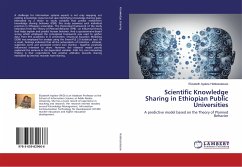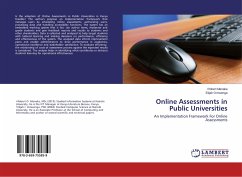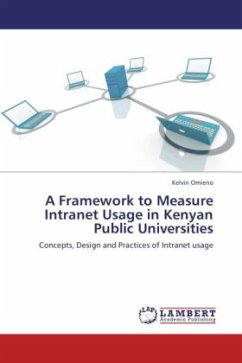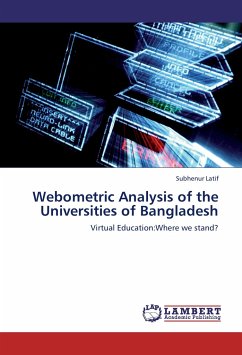
Scientific Knowledge Sharing in Ethiopian Public Universities
A predictive model based on the Theory of Planned Behavior
Versandkostenfrei!
Versandfertig in 6-10 Tagen
62,99 €
inkl. MwSt.

PAYBACK Punkte
31 °P sammeln!
A challenge for information systems experts is not only mapping out existing knowledge resources but also identifying knowledge sharing gaps. Motivated by a desire to study variables that predict researchers' knowledge sharing behavior (KSB), this study examines such individual practices in Ethiopian universities. The theoretical framework of the study emanates from the Theory of Planned Behavior (TPB) - an influential theory that helps explain and predict human behavior. And a questionnaire-based survey which employed the conceptual framework was used to gather data from 618 academics in 8 un...
A challenge for information systems experts is not only mapping out existing knowledge resources but also identifying knowledge sharing gaps. Motivated by a desire to study variables that predict researchers' knowledge sharing behavior (KSB), this study examines such individual practices in Ethiopian universities. The theoretical framework of the study emanates from the Theory of Planned Behavior (TPB) - an influential theory that helps explain and predict human behavior. And a questionnaire-based survey which employed the conceptual framework was used to gather data from 618 academics in 8 universities. Structural Equation Modeling (SEM) was employed for analysis using the Smart-PLS 2.0 statistical tool. As a result, findings indicated that all the antecedents of intention - attitude, subjective norm and perceived control over sharing - together positively influenced intention to share. However, the research model poorly explained the variance in the dependent variable - KSB. Yet, one interesting finding is that respondents had positive attitudes towards sharing motivated by intrinsic rewards from sharing.












